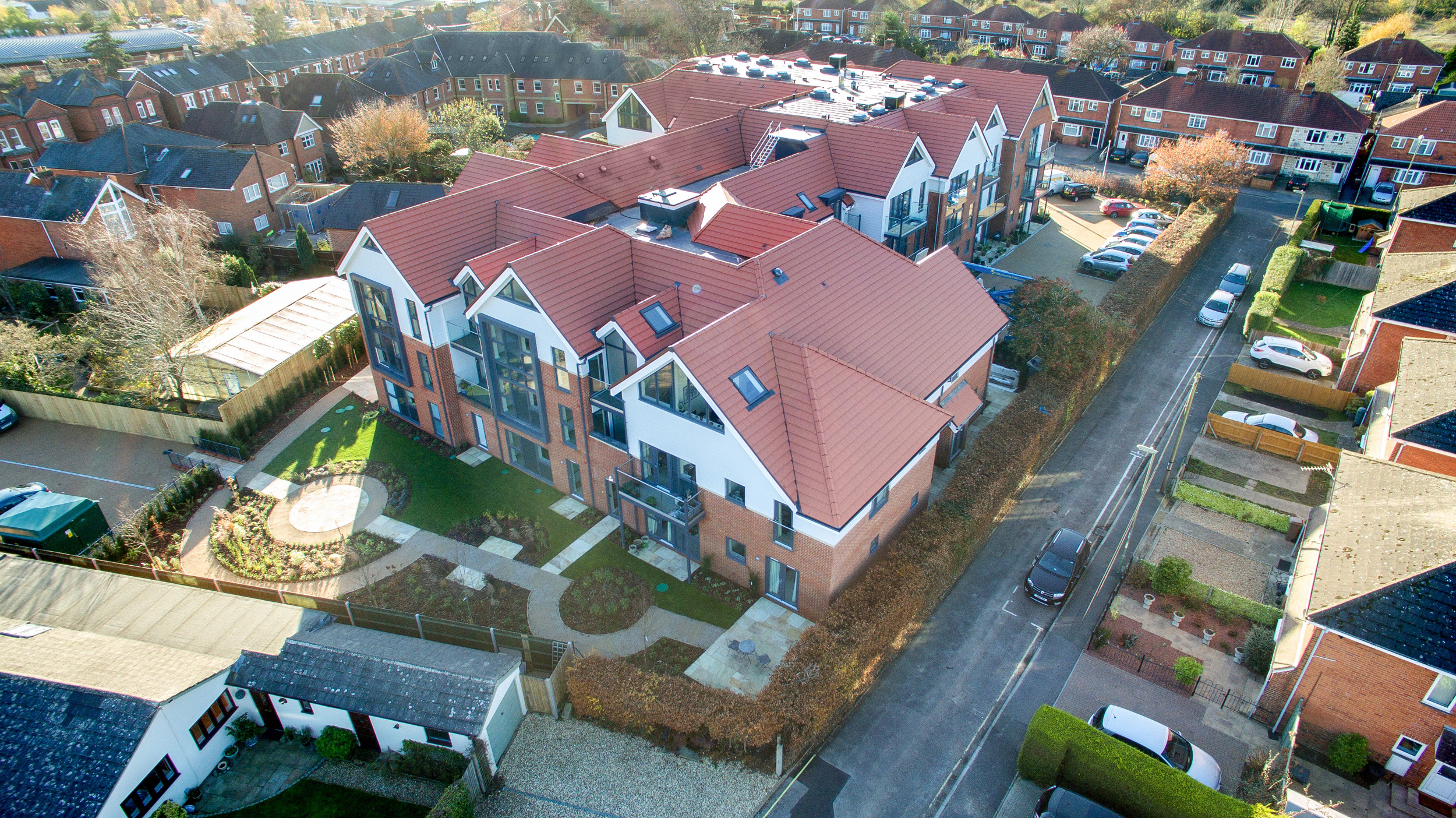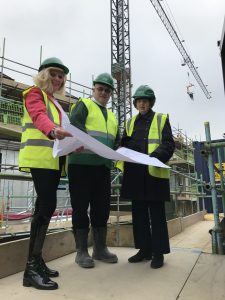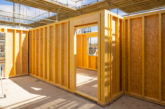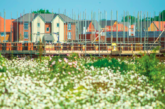
With growth in the market for retirement homes set to continue for some time, PHPD caught up with retirement housebuilder Renaissance Retirement at its latest development in Romsey to discover how its approach to the sector is evolving.
The market for retirement homes in the UK is on the rise, thanks to an aging population and retirees looking to downsize to more suitable properties. A recent survey indicated that almost half of retired people are considering moving to a smaller property, and the recent history of housebuilder Renaissance Retirement reflects this growth in the market.
Formed in the 1990s by Managing Director Robert Taylor, Renaissance Retirement built its first handful of retirement apartments at the Poundbury development in Dorchester. This year, it has plans to build around 400 apartments across the south of England. By 2020, it believes it could be building around 800 homes per year.
To achieve this level of growth, the company has remained committed to its core values. Its mission statement reflects their aim: ‘to be the outstanding provider of superior homes for senior living in the UK’s most desirable locations.’
Desirable areas

Location is a key requirement for the business. The company wants its developments to be close to town centres in desirable areas, but this requirement not always easy to fulfil. Robert Taylor, Managing Director at Renaissance Retirement, explained: “It’s extremely challenging finding the right sites to fit our business model and brand. We have expanded our geographic regions to accommodate increased targets each year. However, because we have an exceptional land team as well as some very proactive agents, we get some fantastic land opportunities across our desks before they reach our competitors. Our business model also allows us to be extremely competitive in all areas of land acquisition.”
The company also explained that other challenges – those familiar to most housebuilders – also exist; including funding, the planning system, and a worsening quality of sub-contractors. “Yes, the skills shortage is affecting us,” explained Paul Williams, Construction Director at Renaissance Retirement. “It’s difficult to tie down good sub-contractors into a timeframe. It is supply and demand. At the moment they spread themselves wide and thin. Getting good, reliable sub-contractors is a big challenge and why we look outside the UK to support our construction.”
Quality homes

Despite the challenges, the company is committed to building high quality homes with high levels of specification. “We are forging a reputation for the pioneering of innovative designs and build, thus offering the retirement sector superior, spacious apartments up to 1875 square feet in size,” noted Robert. He continued, “We are also using ground source heat pumps, basement parking, rooftop gardens, and mezzanine/dual level apartments on selected developments which in turn have been very well received by potential buyers.”
On a tour of the Fleur-de-Lis Romsey development (pictured above), we found that corridors were wide and well lit while the comfortable owners’ lounge had an inviting design with a view onto the garden. The individual apartments we visited felt spacious and benefitted from a high level of specification. It was clear that a great deal of thought had been put into all aspects of the build.
Growth plans
Based in Hampshire, the company has developments located throughout the south of England, including as far north as Oxfordshire. It is currently looking to grow further, with plans for a new regional office in the next few months. Nick Watkins, Development Director, explained: “We have taken on another land manager to help us with our expansion plans in Buckinghamshire and Hertfordshire. Renaissance Retirement has ambitious plans and is growing rapidly – there’ll be a regional office opening in this area by 2019. We will look at expansion throughout the country as we seize new opportunities.”
With the retirement market experiencing strong levels of growth, Renaissance Retirement appears to be well placed to expand with the sector. “In the next couple of years we are looking to increase sales from £32m in 2016 to hit the £100m mark in 2018. Staff levels will increase by 15-20% to reflect this growth,” explained Robert. He concluded: “If all goes well, by 2022, we will be on course to build 800 units a year, employ around 350-450 people, hit sales of £200-250m a year and secure 70-80 new sites under contract a year.”








